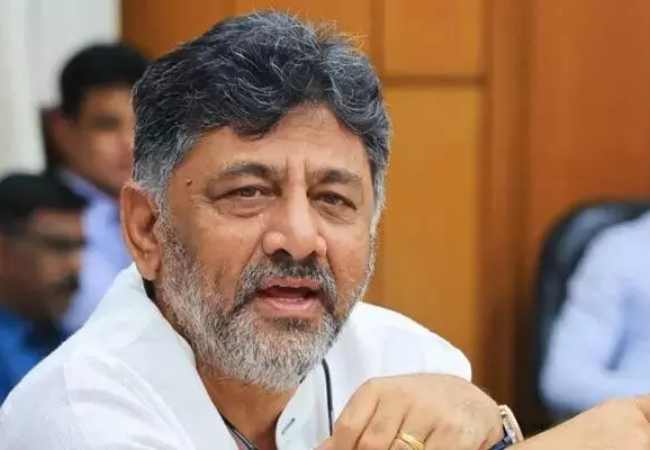New Delhi, Jun 15: The CBI on Wednesday arrested Kalyani Singh, daughter of Acting Chief Justice of Himachal Pradesh High Court, in connection with the killing of national-level shooter Sukhmanpreet Singh alias Sippy Sidhu over six years ago in Chandigarh, officials said.
The CBI had called Kalyani Singh to its office for questioning after it recovered documentary material indicating her affair with Sidhu had turned sour, they said.
During the questioning, Kalyani Singh, daughter of Acting Chief Justice Sabina Singh, was allegedly evasive in her responses following which the CBI arrested her, the officials said.
Sidhu, grandson of a former Judge of Punjab and Haryana High Court and son of a noted lawyer, was pumped with at least four bullets from a short gun firearm on September 20, 2015, and his bullet-ridden body was found in Sector 27 Chandigarh next morning.
The central agency had registered an FIR in the killing of Sidhu who was also a lawyer, on April 13, 2016, on the request of Chandigarh Administration, the CBI said in a statement.
Kalyani Singh was under the scanner of the agency for long as it had emerged during the probe that a woman was accompanying Sidhu's killer .
The CBI had filed an untraced report in 2020 in the case mentioning that it did not have enough evidence to charge sheet her but sought permission to continue investigation because of strong suspicion on her .
The agency had also underlined a Maruti Zen car spotted at the place of incident at the relevant time, with the last four digits 1183 .
During further investigation, alleged involvement of accused (Kalyani Singh) came forth in the case. Accordingly, she was examined and arrested.
"The arrested accused was produced today (Wednesday) in the Court of Special Judicial Magistrate, Chandigarh and remanded to four-day police custody, a CBI spokesperson said.
Let the Truth be known. If you read VB and like VB, please be a VB Supporter and Help us deliver the Truth to one and all.
Bengaluru (PTI): Karnataka has proposed a new Information Technology Policy for 2025–2030, offering extensive financial and non-financial incentives aimed at accelerating investments, strengthening innovation and expanding the state's tech footprint beyond Bengaluru.
The Karnataka Cabinet gave its nod to the policy 2025–2030 with an outlay of Rs 445.50 crore on Thursday after the Finance Department accorded its approval.
The policy introduces 16 incentives across five enabler categories, nine of which are entirely new, with a distinctive push to support companies setting up or expanding in emerging cities.
Alongside financial support, the government is also offering labour-law relaxations, round-the-clock operational permissions and industry-ready human capital programmes to make Karnataka a globally competitive 'AI-native' destination.
According to the policy, units located outside Bengaluru will gain access to a wide suite of benefits, including research and development and IP creation incentives, internship reimbursements, talent relocation support and recruitment assistance.
The benefits also include EPF reimbursement, faculty development support, rental assistance, certification subsidies, electricity tariff rebates, property tax reimbursement, telecom infrastructure support, and assistance for events and conferences.
Bengaluru Urban will receive a focused set of six research and development and talent-oriented incentives, while Indian Global Capability Centres (GCCs) operating in the state will be brought under the incentive net.
Incentive caps and eligibility thresholds have been raised, and the policy prioritises growth-focused investments for both new and expanding units.
Beyond incentives, the government focuses on infrastructure and innovation interventions.
A flagship proposal in the policy is the creation of Techniverse -- integrated, technology-enabled enclaves developed through a public-private partnership model inside future Global Innovation Districts.
These campuses will offer plug-and-play facilities, artificial intelligence and machine learning and cybersecurity labs, advanced testbeds, experience centres, and disaster-resistant command centres.
There will also be a Statewide Digital Hub Grid and a Global Test Bed Infrastructure Network, linking public and private research and development, and innovation facilities across Karnataka.
The government has proposed a Women Global Tech Missions Fellowship for 1,000 mid-career women technologists, an IT Talent Return Programme to absorb experienced professionals returning from abroad, and broad-based skill and faculty development reimbursements.
Shared corporate transport routes in Bengaluru and tier-two cities will be designed with Bengaluru Metropolitan Transport Corporation and other transport entities to support worker mobility.
The government said the policy is the outcome of an extensive research and consultation process involving TCS, Infosys, Wipro, IBM, HCL, Tech Mahindra, Cognizant, HP, Google, Accenture and NASSCOM, along with sector experts and stakeholder groups.
It estimates an outlay of Rs 967.12 crore over five years, comprising Rs 754.62 crore for incentives and Rs 212.50 crore for interventions such as Techniverse campuses, digital grid development, global outreach missions and talent programmes.





